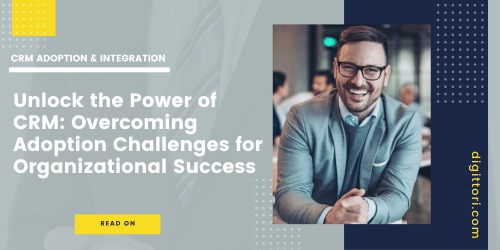
Customer experience (CX) is not just a buzzword. Today, it is a strategic imperative that features at the top of the list of boardroom agendas. That's because it is a critical driver of organizational success.
It's the brands that can forge deep and enduring customer relationships that enjoy long-term success. Like Amazon, which excels at providing a truly local experience that its target audience can relate to. Or Ikea, whose product design scores very high on usability, convenience and affordability (not to mention its fantastic immersive in-store experience.) And Hilton has awed its guests with memorable personalized experiences for loyalty program customers based on their preferences during their previous visits.
These companies have built their brand on being customer-centric. Customer-centricity is not just about attending to customer queries or providing a number to call when they need help. It is about keeping the customer at the heart of every decision.
Often, I encounter situations where the words Customer Relationship Management and Customer Centricity are used interchangeably. So, in this article, I thought it would be worthwhile to reconnect with these terminologies and talk about building customer-centric processes with an advanced CRM platform.
How do you get there: Navigating CX with CRM
As a customer, when a company or brand goes beyond the bare essentials and provides you with exceptional service, you may have a few words of appreciation—but most importantly, you stick with the brand.
Undoubtedly, given a host of factors such as innovative products, competitive pricing, and assured service, you stay with brands that deliver great customer experience. It may be because they finetune their service to just what you wish, or because they offer you the right kind of discounts or offers, or even because they're always there to assist you when you need them.
CRM is not just a tool for customer service or sales and marketing teams. It is a holistic strategy that encompasses all aspects of customer engagement, from initial contact to post-purchase interactions.
It does not just manage customer data but also helps various teams understand customer behavior, track their preferences, and get insights into what will make customers happy.
The impact of a CRM is profound and systemic and can transform businesses from transactional entities into customer-centric organizations. So much so that it becomes a roadmap to customer retention and brand loyalty.
Building a customer-centric company that thrives in a competitive landscape
Advanced CRM platforms leverage technology to manage and segment customer data, analyze customer behavior and preferences, and optimize customer interactions across various communication channels.
The data gold rush
Many businesses have traditionally looked at CRM systems as digital filing cabinets for storing customer information. However, the true potential of modern CRM systems lies in their ability to unlock the goldmine of customer data that businesses hold within their existing data.
Every time customers interact with your website or social media channels, click on an email promotion or download a service sheet or promotional ebook from your website, they leave a digital trail. From it you can gain valuable insights about what your customers are looking for, what they are interested in and what they relate to.
Unlock these insights, and you have a veritable data gold mine!
These insights can then be used to drive personalized marketing campaigns, enhance customer service interactions, and develop innovative products and services—as the data points you toward the ones that your customers are actually looking for.
A CRM is a way for you to access, understand and monetize a goldmine already at your fingertips: customer data. But as companies start to adopt a new system, challenges emerge.
Challenges in CRM Adoption
At Digittori, the significant challenges we have seen during CRM implementations revolve around user acceptance—which requires skillful change management and integration of the CRM with your existing tech stack to create a seamless ecosystem
Challenge #1: User acceptance—A hurdle to CRM success?
A successful CRM implementation hinges on its adoption by employees across various departments and levels of seniority.
If users perceive the system as complex, time-consuming, or irrelevant to their daily tasks, they will look for reasons to work around it or simply try to avoid it. Then comes the unnecessarily harsh step of the management to mandate its use. (Ideally, you want your team to take up a new CRM platform enthusiastically and look forward to using it!)
Any resistance to using a CRM system after the organization has decided to implement it can be damaging. Apart from the overall underutilization of the CRM's capabilities, it can also lead to data silos, fragmented customer data, and a failure to unlock insights that are hidden in your very own data goldmine!
It's important for employees to approach the implementation with a positive mindset. So, at the very start of a CRM implementation, we recommend that companies listen closely to what their employees have to say about the decision to transition to the new CRM system. Any signs of resistance or doubt must be taken seriously and addressed with a change management strategy.
Sometimes, we'll hear: "But I'm using Excel to do this because I have complete control, and I want this data processed in the particular way and no other."
Or: "But we're already using [XYZ] system to store our customer data. And we use this other system that does [ABC], and we have another specialized one that we implemented just for [EFG]."
And even: "I don't think my team will be able to do all this... they are not very comfortable with new tech systems."
PRO TIPS TO MANAGE CHANGE:
- A comprehensive change management strategy should involve clear communication of how the new CRM system will benefit every employee. For example, conducting sessions to reflect 'A day in the life of...'.
- Providing adequate training and support for users becomes essential. Often, a 2 to 3 month post go-live watch is a good idea—promising them support during working hours should they still need to ask how to do something with the system.
- Focus implementation efforts on tailoring workflows and configuring the CRM platform to fulfill the specific needs of each department, team, or role.
Challenge #2: Integrating CRM with your existing tech stack
This second challenge that is vital to address is a technological one—unlike the first, which was a human aspect.
Your CRM system must seamlessly integrate with your existing tech systems— such as ERP, inventory data and accounting systems, and any other industry-specific or legacy systems your company uses.
PRO TIPS FOR AN INTEGRATED CRM:
- Integrations must be carefully planned, and your existing processes must be mapped to your new 'to-be' state workflows. A customer 360 should prevail as a top-of-mind objective while mapping the CRM to the other applications in your organizational framework.
- It is important to ensure that no department or team works with informational silos—instead, concentrate on providing consistent customer data across all departments or teams—whether it is marketing, sales, operations, or customer service. As a result your company will provide a seamless and personalized experience to your customers.
- Work with a CRM system that is easy to integrate with commonly-used business systems. Choose a CRM implementation partner with a good understanding of your industry segment and your tech stack in use.
In sum
CRM is the key to efficiency and customer-centricity in a modern market. However, in the final analysis, I'd like to stress that the CRM is not just a standalone tool but an integral part of the organizational processes.
It's not just a tool for storing data. Data on its own is useless.
For data to be valuable for making smart business decisions, it needs to be harnessed and made interoperable with your existing systems, creating an entire ecosystem of customer-centric data that supports digitized workflows and requires minimal maintenance.
Most importantly, look at the challenges posed by user acceptance and integration not as roadblocks but as opportunities to redefine your approach to Customer Data Management.
Your CRM rolls up to building a holistic CX strategy to thrive in a hyper-competitive digital age.
Digittori: Helping you align sales, marketing, and service with HubSpot CRM
As your business grows and matures, your CRM system must be able to flex and scale accordingly.
You want a system that can be implemented quickly, that integrates easily with your tech stack, and has an intuitive interface so that your employees will find it easy to use.
You want to stay away from over-the-top systems that make adoption complex and expensive and require niche technical expertise.
Work with Digittori to enable a streamlined and automated system to store newly acquired customer data, manage sales pipelines, and derive insights from all customer interactions and touchpoints.
It is easy for valuable leads to fall through the cracks in the absence of an efficient and automated CRM platform. HubSpot's CRM is an all-in-one system with sales, marketing and service tools for automation, productivity, and efficiency. The HubSpot platform enables you to streamline your complete buyer journey. Internal teams can share operational and customer-centric data to work seamlessly across functions. As a result, your customers have a consistent end-to-end customer experience.
Want to learn how you can leverage HubSpot's world-class CRM to unlock the true potential of your customer data?
Talk to Digittori: As a HubSpot Solutions Provider, we implement the HubSpot CRM platform and recommend the best ways you can leverage customer data to align your sales, marketing, and service workflows into a seamless and frictionless ecosystem that keeps the customer at the heart of every business decision.
If you'd like to get on a quick consultative call, please click here to book a meeting, and I'd be happy to hear out your challenges and discuss your growth initiatives.


.jpg?width=100&height=100&name=DSC_0441%20(3).jpg)